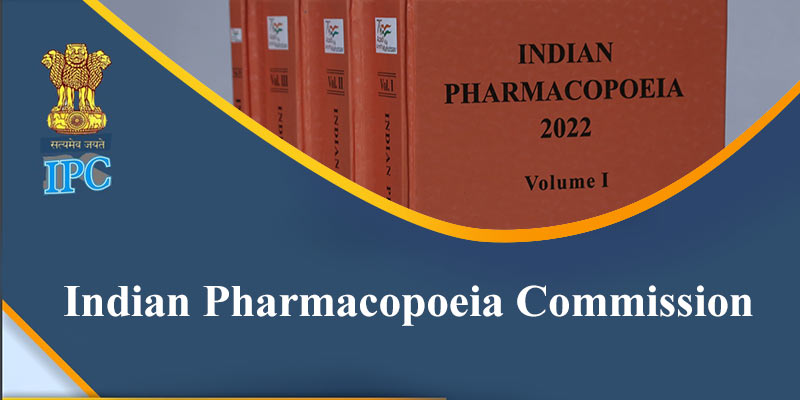- India
- Oct 11
Explainer - What is the purpose of Indian Pharmacopoeia Commission?
Indian Pharmacopoeia Commission (IPC) has joined the Pharmacopoeial Discussion Group (PDG) as a member at the PDG’s Annual Meeting held in Hyderabad.
What is the purpose of Indian Pharmacopoeia Commission (IPC)?
• The Indian Pharmacopoeia Commission (IPC) is an autonomous institution of the ministry of health and family welfare.
• It became fully operational from January 1, 2009.
• The IPC was created to set standards of drugs in the country. Its basic function is to regularly update the standards of drugs commonly required for treatment of diseases prevailing in this region.
• It publishes official documents for improving quality of medicines by way of adding new and updating existing monographs in the form of Indian Pharmacopoeia (IP).
• IPC promotes the rational use of generic medicines by publishing the National Formulary of India.
• The IPC’s mission is to promote public and animal health in India by bringing out authoritative and officially accepted standards for quality of drugs, including active pharmaceutical ingredients, excipients and dosage forms, used by health professionals, patients and consumers.
• This is achieved by developing the standards for medicines and supporting their implementation. In addition, the IPC also develops IP Reference Substances (IPRS), which act as a fingerprint for identification of an article under test and its purity as prescribed in the IP monographs.
• The Commission has a three-tier structure, comprising the General Body, the Governing Body and the Scientific Body, which are supported by the IPC Secretariat and the Indian Pharmacopoeia Laboratory (IPL).
• The IPC Secretariat and IPL scientists with the support of different advisory expert committees and expert members of the Scientific Body examine the suitability of the standards to be included in Indian Pharmacopoeia (IP).
What is Indian Pharmacopoeia?
• Indian Pharmacopoeia (IP) is the official book of standards for drugs in fulfilment of the requirements of the Drugs and Cosmetics Act, 1940 and Rules 1945 thereunder so as to specify the standards of identity, purity and strength for the drugs imported, manufactured for sale, stocked or exhibited for sale or distributed in India.
• The standards prescribed in IP adhere to the concept of harmonisation, keeping in view the feasibility, technological advancements in manufacturing and analysis of the drugs and pharmaceuticals in the country without compromising with the quality of the products.
• The IP standards are authoritative in nature and are enforced by the regulatory authorities for quality control of medicines in India. During quality assurance and at the time of dispute in the court of law, IP standards are legally acceptable.
Pharmacopoeial Discussion Group (PDG)
• The Pharmacopoeial Discussion Group (PDG) brings together the European Pharmacopoeia, the Japanese Pharmacopoeia and the United States Pharmacopeia. The World Health Organisation (WHO) serves as an observer of the PDG.
• It was created in 1989.
• The PDG works to harmonise excipient monographs and general chapters, reducing the burden placed on manufacturers to perform analytical procedures in different ways depending on the jurisdiction.
• The PDG decided to launch a pilot for expansion of membership in 2021.
• Global pharmacopoeias that were interested in participating in this pilot had been invited to submit their applications, which were then evaluated based on objective entry criteria.
• After reviewing each application, the PDG agreed by consensus to start the pilot phase with the IPC, the only applicant that met all the requirements in the entry criteria for the pilot.
• After one year of pilot phase, based on IPC’s involvement, contribution and future potential, the decision on inclusion as permanent member of PDG was taken.
Expected outcomes of inclusion of IPC as PDG member
• Inclusion of IPC in PDG will significantly increase the visibility of the Indian Pharmacopoeia on international platforms.
• It will establish IP as progressive pharmacopoeia which designs drug quality standards at par with global standards. Application of these standards will lead to production of world class pharmaceutical products for domestic and export markets.
• IPC’s inclusion in PDG will help in effort towards its recognition by other countries.
• It will help IPC to collaborate and harmonise pharmacopoeial standards with other major regulatory/standard setting authorities which in turn will help in ensuring the quality and safety of pharmaceuticals at a global level.
• Membership in the PDG would enhance the international recognition of the standards set by the IPC. This also has potential to improve the acceptance of Indian pharmaceutical products in global markets, as they adhere to internationally recognised quality standards.
• IPC will benefit from the exchange of information and best practices with other PDG members. This collaboration will help India in aligning its regulatory processes and practices with global standards, making it easier for Indian pharmaceutical companies to comply with international regulations.
• Membership in the PDG will facilitate enhanced export of Indian pharmaceutical products to other member countries. Aligning with international standards will reduce trade barriers and make it easier for Indian pharmaceutical companies to access global markets.
• The harmonisation of pharmacopoeial standards among PDG members will contribute to the global effort to ensure the safety and efficacy of marketed pharmaceutical products. This will have a direct impact on public health worldwide, as it helps to prevent the circulation of substandard or counterfeit drugs.
Manorama Yearbook app is now available on Google Play Store and iOS App Store


